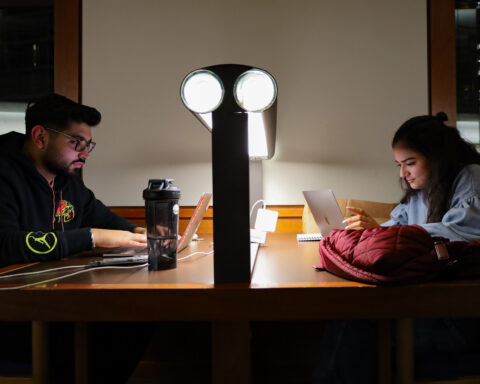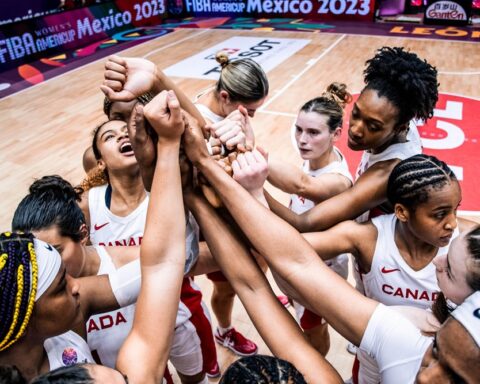Journalism and the media play a major role in forming a national identity and informing the public about what’s important.
That is why Rohit Joseph, who is currently in the Masters of Journalism program at The University of British Columbia (UBC), says that people of diverse backgrounds play an important role in the media.
Joseph and his family moved to Vancouver, British Columbia from New Delhi, India when he was nine years old. The 23 year old has spent most of his life in Canada and identifies as Canadian.
“If the news media and political establishments want to improve their relationship with the diverse ethnic communities that make up this nation, we need qualified journalists from these communities to represent them,” he says.
It starts in j-school
Joseph’s UBC classmate, Jessica Quin (a pseudonym), says that journalism as a whole doesn’t accurately represent Canada’s diversity and that there’s more work to be done – and it starts in the classroom.
“Ethnic diversity in journalism schools is not only important, it is absolutely necessary in an ever-changing Canadian multicultural landscape,” says the 24 year old.
Journalism programs, like all other post-secondary programs, have a responsibility to produce graduates of all ethnicities. Failure to do so is a “disservice to the country” according to Carleton University journalism student Jolson Lim.
“Journalists of colour have to work harder to land a job in the industry.”
In the United States, a survey from the Grady College of Journalism and Mass Communication found that approximately one out of every four students majoring in journalism or communications is a visible minority.
In Canada, according to Humber College journalism program coordinator Dan Rowe, it seems that while there is a considerable number of visible minorities graduating from j-school, they aren’t the ones being hired.
Quin says hiring challenges are something she hears of often from friends already working in the industry.
“In truth, you will be more easily hired if you are white, because you fit the standard status quo and implicitly fit into the newsroom culture,” she says. “Journalists of colour have to work harder to land a job in the industry.”
‘White values’ remain dominant
Guyanese-born Varsha Ramdihol remembers watching as her parents struggled to find employment due to hiring biases when her family first immigrated to Toronto.
Ramdihol, 18, studies journalism at the University of Toronto Scarborough’s campus and has a “very diverse” class, which she thinks is important. Still, she admits to one major concern: her ability to find a job when she graduates based on what she looks like or cultural stereotypes.
Ramdihol says that, if hired, she and other visible minorities can bring added value to the news through “background information, context and history” when it comes to certain events.
Jeffrey Dvorkin, 69, is the director of U of T’s Journalism program and teaches a class at the Scarborough campus. Like Ramdihol, Dvorkin says his class is very diverse, which, he adds, is a good thing. But the former National Public Radio ombudsman does have some concerns.
“[J]ournalism refuses to shake its own whiteness.”
“I worry that as journalism schools graduate journalists of colour, that they may reflect a class perspective (educated, middle class) rather than a purely ethnic one,” the professor explains.
Dvorkin admits that while reflecting a class bias can be a negative thing, it isn’t always. “It’s just part of the business,” he says.
Miglena Todorova of U of T’s Ontario Institute for Studies in Education (OISE) agrees with Dvorkin’s claim. Todorova, an assistant professor in social justice, says that the ethnic composition of a classroom doesn’t matter if biases exists.
Todorova explains that the class bias within journalism is entrenched in the profession.
“Journalism therefore continues to be dominated by a particular set of needs and knowledge and those are the values of white people,” Todorova adds.
“You have to ask yourself ‘who is teaching these programs?’”
Todorova argues that many of the people in decision-making positions working within mass media are white and as a result “journalism refuses to shake its own whiteness.”
“You have to ask yourself ‘who is teaching these programs?’” Todorova adds.
Changing academia
“I have never encountered a non-white professor in journalism,” says 20-year-old Hannah Wondmeneh, a fourth year journalism student at Carleton University who self-identifies as Ethiopian-Canadian.
Wondmeneh’s observation is not uncommon it seems.
Of all the students New Canadian Media spoke with in writing this article, the only one who said he saw his ethnicity represented amongst the faculty was a Caucasian male from Alberta.
Dvorkin thinks that balancing conflicting forces is the key to solving issues of diversity in journalism. Dvorkin admits that academia can be rigid when it comes to accepting new ideas, but he’s confident there is a way to “make them compatible.”
But for Wondmeneh, what’s troubling is that she feels as if nothing is being done about it.
“We don’t talk about,” she says. “It’s as if it’s a non-issue, not anything that would need to be addressed, and I find that frustrating.”
Marcus is a poet, editor and freelance journalist based in Toronto. He currently works with New Canadian Media as an Editor and as a Freelance Writer for ByBlacks.com, The Edge: A Leader's Magazine and The Soapbox Press.




